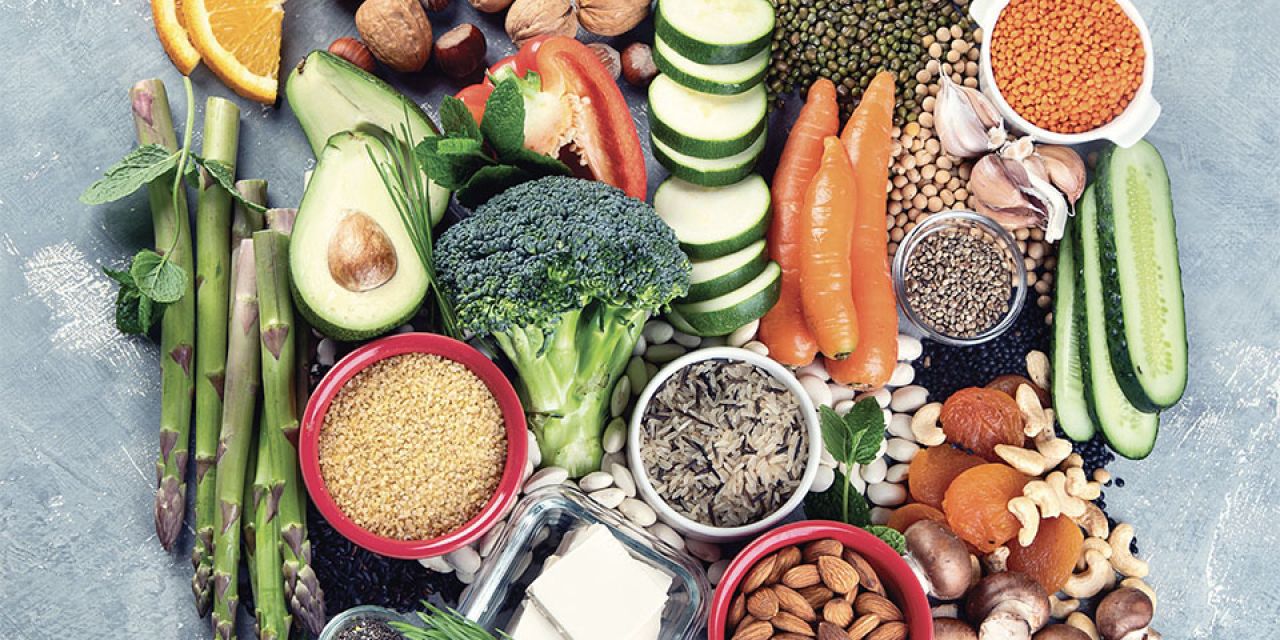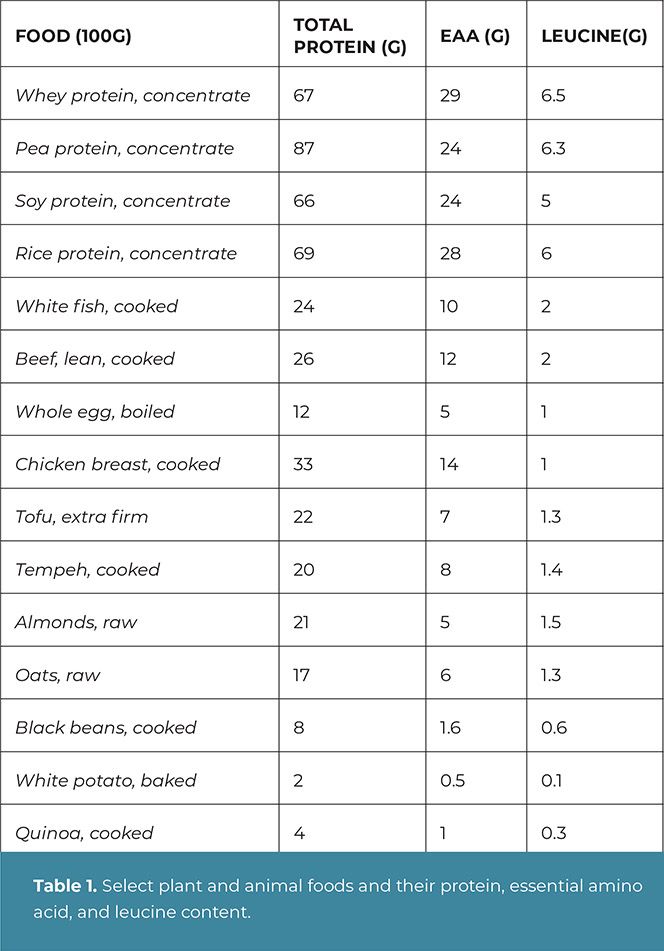Power Up
by Nanci Guest, PhD, RD, CSCS

Plant-based diets in sports: balancing wellness and performance.
The rise of plant-based diets in sports and fitness highlights a shift toward holistic well-being, emphasizing both personal health and environmental sustainability. While peak performance remains a priority, many athletes are exploring plant-based eating as part of a balanced approach to health, prompting questions about its impact on training and performance.
Traditionally, animal-based proteins like meat, dairy, and whey powders have been central to sports nutrition due to their ideal amino acid profile and high leucine content, which is a key trigger for muscle protein synthesis (MPS). However, numerous studies over recent years have tested the viability of plant-based diets for sports performance and training—whether building strength and endurance or optimizing muscle repair and recovery—and yes, plants can do the job. Plant foods provide the antioxidant and anti-inflammatory capacity essential for recovery that animal foods lack. Additionally, the fiber in plant foods promotes the growth of beneficial bacteria in our microbiome, benefiting health, body composition, and performance.
So why do plant proteins get such a bad rap? This likely stems from the terminology we use in food chemistry and nutrient analysis. “Protein quality” is an index of how well a protein meets the requirements for essential amino acids and our physiological needs. Indeed, when we classify proteins based on their “quality”, animal proteins typically score higher for optimal ratios for MPS, i.e., muscle growth and repair. Meat, poultry and fish are also more protein dense and easier to digest because they lack the fiber and carbohydrate content that we find in beans, lentils and tofu. However, these measurements typically focus on isolated protein sources rather than the varied, mixed meals people consume daily. A chicken breast for dinner or a bowl of beans? Why measure isolated protein sources, when we eat meals that include a variety of several foods. The research community has addressed such issues by developing new ways to evaluate the quality and quantity of protein in meals, especially given the global shift in dietary guidelines toward increased plant-based protein consumption. The Meal Protein Quality Score (MPQS) is a new and practical tool that is used to guide dietary transitions toward plant-rich diets, ensuring that such shifts do not compromise diet quality.
Rather than comparing single foods like steak with tofu or eggs with lentils, consider mixed meals such as a bean burrito packed with tomatoes, leafy greens, avocado and corn salsa or a tofu stir-fry with a rainbow of veggies and a flavor-filled peanut-sauce. Many are also surprised to learn that extra firm pressed tofu ounce for ounce has a similar protein content to a serving of fish or beef. And yes, soy is safe and disease-fighting for both men and women. Who knew a peanut butter and fresh berries (nature’s jam) sandwich on whole grain bread packs a whopping 20 g of protein for an easy post-workout mini meal. Add a cup of soy milk for an additional 8 grams of protein, the same as a cup of cow’s milk. In my 20 years of experience working with world class vegetarian and vegan athletes consuming a variety of plant foods at meals is a hallmark of plant-focused dietary approach and a well-established habit for most.
Finally, while protein intake is essential, it is a distant second to resistance training, the primary driver of MPS and, ultimately, muscle growth. No matter how well an athlete’s diet is optimized, without the mechanical stimulus provided by resistance training, muscle-building and strengthening processes will not be activated. For athletes on a plant-based diet or otherwise, the key lies in pairing consistent resistance or power training with a diet that supports muscle recovery. This includes consuming adequate protein throughout the day to enhance MPS (which occurs over 24-48 hours post-training, skiing, lifting) and ensure an ongoing supply of amino acids for repair and adaptation.
Here are a few strategies for athletes aiming to build or maintain muscle on a plant-based diet:
1. Diversifying Protein Sources: Remember those mixed meals and snacks—variety is key. By combining different types of plant proteins (e.g., legumes, grains, nuts, seeds and plant milks) throughout the day, athletes can achieve a complete amino acid profile.
2. Increasing Protein Intake: Due to lower digestibility and bioavailability, athletes on plant-based diets may benefit from consuming a slightly higher protein intake than those on omnivorous diets. For example, aiming for around 1.2-2.0 grams of protein per kilogram of body weight, depending on training intensity, can help ensure muscle maintenance and growth.
3. Leucine Supplementation: Leucine is a critical amino acid for MPS, and plant-based diets tend to have lower leucine levels than animal-based diets. Supplementing with vegan BCAAs (branched-chain amino acids) or leucine can enhance muscle synthesis post-training.
4. Fortified Plant Proteins: Plant-based protein powders (e.g., pea, soy, hemp) with added aminos can offer convenient, high-quality concentrated protein sources that are comparable to whey protein in promoting MPS. Combine your fav protein powder with fruit, kale or spinach leaves, nut butter or avocado and plant milk for a smooth, rich nutrient-packed shake.
5. Strategic Meal Timing: Eating higher-protein meals at regular intervals (every 3-4 hours) helps maintain a steady stream of amino acids, supporting ongoing MPS, especially beneficial during heavy training phases when repairing damaged tissue and building strength are primary goals. E
Dr. Nanci Guest is a registered dietitian, researcher in nutritional sciences and strength coach with over two decades of experience. She holds degrees from UBC in agricultural science, dietetics, and kinesiology, along with a PhD in nutritional sciences and genetics from the University of Toronto. Dr. Guest teaches plant-based sport nutrition and sustainable agriculture and was a co-author on the 2024 Position Paper from the Academy of Nutrition and Dietetics on Vegetarian Dietary Patterns. Her current research focuses on regenerative, plant-based farming in Collingwood.










